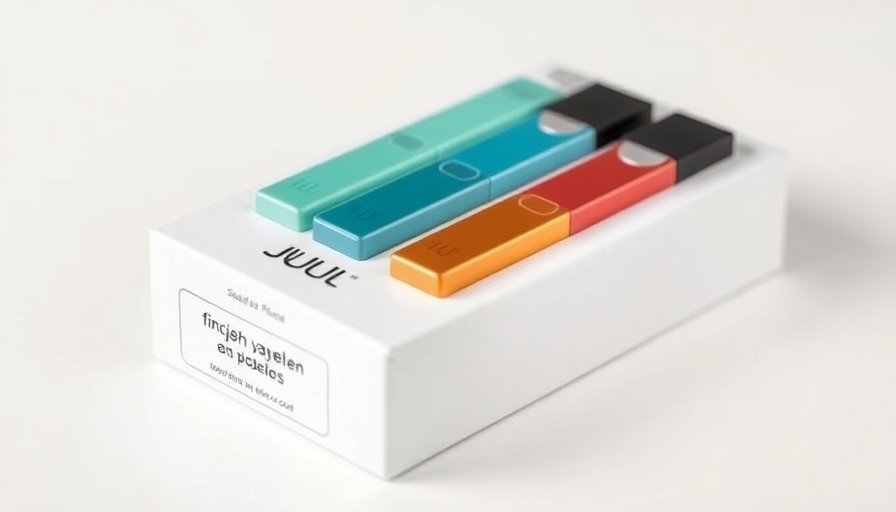
FDA's Approval of Juul: A Controversial Decision
In a move that has stirred debates across the nation, the FDA has approved the sale of Juul's e-cigarettes in the United States. This decision marks a significant shift after an extended battle over the health implications of vaping, particularly among youth. The decision allows Juul Labs to market its e-cigarette devices and both tobacco and menthol refill cartridges, which proponents argue could help adult smokers transition away from traditional cigarettes.
Understanding the Backstory Behind Juul's Approval
Juul's sleek designs and flavored cartridges took the market by storm in 2015, especially appealing to younger consumers. However, as vaping became increasingly popular, rising concerns over health risks and youth addiction prompted drastic actions. The FDA's order to remove Juul’s products from the market in 2022 underscored the agency's commitment to combating the vaping epidemic. While the ban was temporarily lifted during legal challenges, its implications have remained a pressing topic for public health advocates.
The Impacts on Teen Vaping Trends
Recent data highlights the ongoing challenges faced by health officials. Although overall teen vaping rates have seen a decline since peaking in 2019, a troubling statistic shows that nearly 1.6 million middle and high school students continue to use e-cigarettes, with nearly 90% favoring flavored varieties. Such figures illustrate not only the ongoing impact of products like Juul but also the necessity for stringent regulations to safeguard young audiences from harmful nicotine exposure.
A Double-Edged Sword: E-Cigarettes as Smoking Cessation Aids?
The approval of Juul has spurred discussions about the broader role of e-cigarettes in public health. A recent Australian study suggested that vaping might be more effective than traditional nicotine replacement therapies in aiding smoking cessation. This complex issue poses the question: can Juul’s products truly assist smokers looking for alternatives, or do they merely contribute to a new wave of nicotine dependency among youth?
Call for Vigilance: Monitoring Product Compliance
The FDA's approval does not equate to a clean bill of health for Juul products. Health authorities have vowed to monitor compliance vigilantly, ensuring that marketing practices do not target young audiences. Advocates express concern that the continued availability of flavored products could reverse gains in reducing youth vaping rates, prompting calls from various organizations for a complete ban on flavored tobacco products.
Contact us for more details, as we delve into the evolving landscape of tobacco and nicotine products and their implications for public health.
 Add Row
Add Row  Add
Add 




Write A Comment